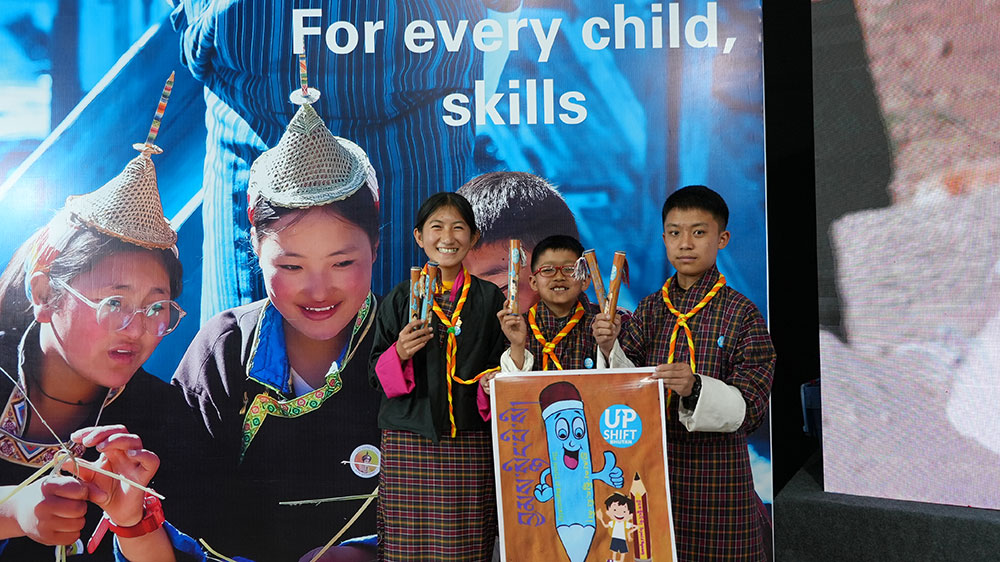Sherab Lhamo
Khamdang Lower Secondary School in Trashiyangtse took the top spot with their innovative idea of crafting pencil covers from paper waste, aiding students who lack access to pencils.
Karma Tshomo, a member of the team, explained the process, saying the purchase of graphite and utilisation of borrowed equipment for pencil drying.
She said they plan to acquire a pencil rolling machine and a drying apparatus, as they currently rely on natural light for drying.
Yangchenphug Higher Secondary School came first in Senior category their project was on food waste recycling machine aimed at converting food waste into usable manure for agricultural purposes, thereby reducing methane emissions.
The winning teams received Nu 120,000 each as seed funding to further develop their projects, while the first and second runners-up received Nu 80,000 and Nu 50,000 respectively.
Launched in 2022, the National Innovation Challenge focuses on empowering youth through initiatives like UPSHIFT, which imparts essential life skills such as communication and problem-solving.
UPSHIFT is currently in 184 schools, 10 youth centers, and 7 colleges under the Ministry of Education and its affiliates.
Organisers said that the projects showcased address community issues, with participants devising solutions based on observed challenges.
Winning teams will get mentorship programs provided by three private firms: Impact Hub, Green Road, and iBest. Additionally, iBest has offered a one-year free subscription to Educare Skill for participants from 14 schools.
Evaluation criteria for the winning projects included problem definition, project execution progress, innovation, and collaboration among others.
Among notable innovations, Genekha Primary School,Thimphu, securing third place, developed an electronic sound system to alert farmers of wildlife intrusion into farmlands.
Motithang Higher Secondary School, Thimphu, also placed third with their Smart Agriculture project, using sensors to enhance farming efficiency. Tashi Yugal Norbu, a team member, highlighted the benefits of sensor-based monitoring for plant health and soil moisture regulation.
Forty-five UPSHIFT member students, along with 14 focal teachers and principals from 20 dzongkhags, participated in the event.
The event’s closing day yesterday saw the presence of the Minister of Education, Yeezang De Thapa.


